As a digital marketing professional with over a decade of experience, I’ve seen firsthand how the hospitality industry has been transformed by online marketing. Remember when hotel bookings were primarily made through travel agents or direct phone calls? Those days are long gone! In 2024, having a robust digital marketing strategy is no longer optional for hotels – it’s essential for survival. Let me share a quick story: I once worked with a boutique hotel that was struggling to fill rooms despite its charm and great location. Within six months of implementing a comprehensive digital marketing plan, their occupancy rates skyrocketed by 40%! Today, I’ll walk you through 10 proven strategies that can help your hotel achieve similar success. Buckle up, because we’re about to dive into the exciting world of hotel digital marketing!
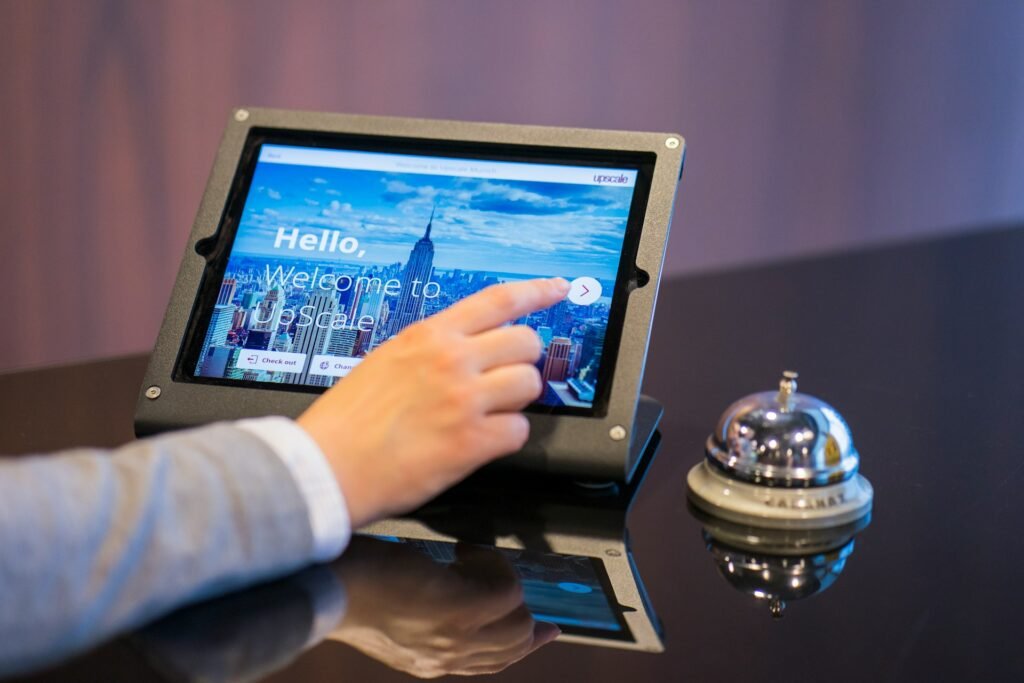
Optimize Your Hotel Website for Search Engines and User Experience
Optimizing a hotel website is crucial in today’s digital landscape. It’s like preparing for a grand opening every single day, rolling out the red carpet for both search engines and potential guests. Let’s dive into the key aspects of hotel website optimization.
First things first, tackle keyword research. This step is truly eye-opening for many hoteliers. People aren’t just searching for broad terms like “hotels in [city name]” anymore. They’re looking for specific experiences: “pet-friendly boutique hotels near [landmark]” or “historic hotels with [specific view] in [neighborhood].” This shift demonstrates that broad terms are out, and long-tail keywords are in. It’s essential to sprinkle these gems throughout your site’s content, meta tags, and even in the alt text of your high-quality room photos.
However, it’s crucial to strike a balance between pleasing search engines and catering to human visitors. Your content should be keyword-rich but still read naturally and engagingly. Describe the feel of your Egyptian cotton sheets, the aroma of freshly baked pastries wafting from the kitchen each morning, and the breathtaking views from your rooms. Paint a vivid picture that appeals to the senses and emotions of potential guests.
Implementing schema markup is another vital step. Think of it as a secret handshake with search engines. It helps them understand that “check-in time” means, well, check-in time, and not just random words on a page. This technique helps your hotel show up in rich snippets in search results, significantly increasing visibility and click-through rates.
Mobile-friendliness is absolutely crucial in today’s market. With more and more travelers booking on-the-go, your site needs to look and function flawlessly on everything from smartphones to tablets. A responsive design ensures that potential guests have a seamless experience regardless of the device they’re using.
Page load speed is another critical factor. For every second your page takes to load, you risk losing potential bookings. Compress images, leverage browser caching, and consider implementing AMP (Accelerated Mobile Pages) to dramatically improve load times. A fast-loading site not only improves user experience but also boosts your search engine rankings.
Lastly, focus on creating high-quality, relevant content. Go beyond the standard “welcome to our hotel” information. Develop local area guides that even locals find useful, provide insider tips on the best times to visit popular attractions, and share unique stories about your hotel’s history or local culture. This type of content not only improves your SEO but also positions your hotel as a knowledgeable and helpful resource for travelers.
By implementing these strategies, hotels can significantly increase their organic search traffic and, more importantly, their booking conversions. Remember, SEO isn’t a one-time task. It requires ongoing effort, regular updates, and patience. But the rewards – increased visibility, more bookings, and higher revenue – make it well worth the investment.
Keep in mind that the digital landscape is always evolving. Stay informed about the latest SEO trends and best practices to ensure your hotel’s website continues to perform well in search results and provide an excellent user experience for potential guests.
Leverage Google Hotel Ads to Increase Direct Bookings
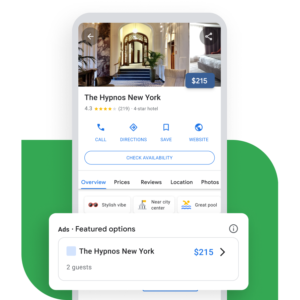
Let me tell you, Google Hotel Ads have been a game-changer in the hospitality industry. When they first rolled out, I was skeptical. Another advertising platform to manage? Great, just what we needed, right? But boy, was I wrong.
Google Hotel Ads are like having a prime piece of real estate right where travelers are actively searching. It’s not just about visibility anymore; it’s about being front and center when potential guests are ready to book. And let’s face it, in today’s world, if you’re not on Google, you might as well be invisible.
Now, setting up Google Hotel Ads isn’t exactly a walk in the park. First, you need to get your ducks in a row with a Google Hotel Center account. This is where you’ll manage all your hotel info, rates, and availability. Pro tip: make sure your data is squeaky clean. I once saw a hotel lose out on bookings because their rates weren’t updating correctly. Talk about leaving money on the table!
Integration with your booking engine is crucial. It needs to be seamless, or you’ll end up with more headaches than bookings. Trust me, I’ve been there. Nothing’s worse than seeing a spike in traffic but no corresponding increase in reservations because of a technical glitch.
One of the coolest things about Google Hotel Ads is the Google Business Profile integration. It’s like the ultimate digital billboard for your hotel. Make sure it’s optimized with mouth-watering photos, up-to-date info, and yes, those all-important guest reviews. Speaking of reviews, don’t just let them sit there. Respond to them! Good, bad, or ugly – show potential guests that you’re engaged and care about their experience.
Now, let’s talk bidding strategy. This isn’t a “set it and forget it” kind of deal. You’ve got to be strategic. I’ve seen hotels blow their entire budget on broad match keywords and end up with a bunch of tire-kickers instead of genuine bookings. Focus on intent-driven searches. Someone looking for “luxury hotels in [your city] with spa” is probably a lot closer to booking than someone just browsing “hotels in [your city]”.
One of my favorite tactics is using bid adjustments. It’s like having a secret weapon in your arsenal. You can bid higher for mobile users (perfect for last-minute bookings), adjust bids based on length of stay, or even target specific countries. I once helped a beach resort boost their off-season bookings by targeting ads to chilly northern states. You’d be surprised how appealing a sunny beach looks when you’re knee-deep in snow!
But here’s the kicker – Google Hotel Ads aren’t just about getting more bookings. They’re about getting more direct bookings. And that, my friends, is where the real money is. No hefty OTA commissions, more control over the guest experience, and a chance to build a direct relationship with your guests. It’s a win-win-win situation.
Remember, though, success with Google Hotel Ads doesn’t happen overnight. It takes time, testing, and a whole lot of data analysis. But stick with it, and you’ll see results. I’ve watched hotels go from being buried on page 3 of search results to dominating the hotel pack. It’s like watching your kid win the spelling bee – proud doesn’t even begin to cover it.
So, if you’re not leveraging Google Hotel Ads yet, what are you waiting for? Your competitors certainly aren’t sitting on their hands. Get in there, start experimenting, and watch those direct bookings soar. Just don’t forget to thank me when you’re swimming in reservations!
Implement a Data-Driven PPC Strategy
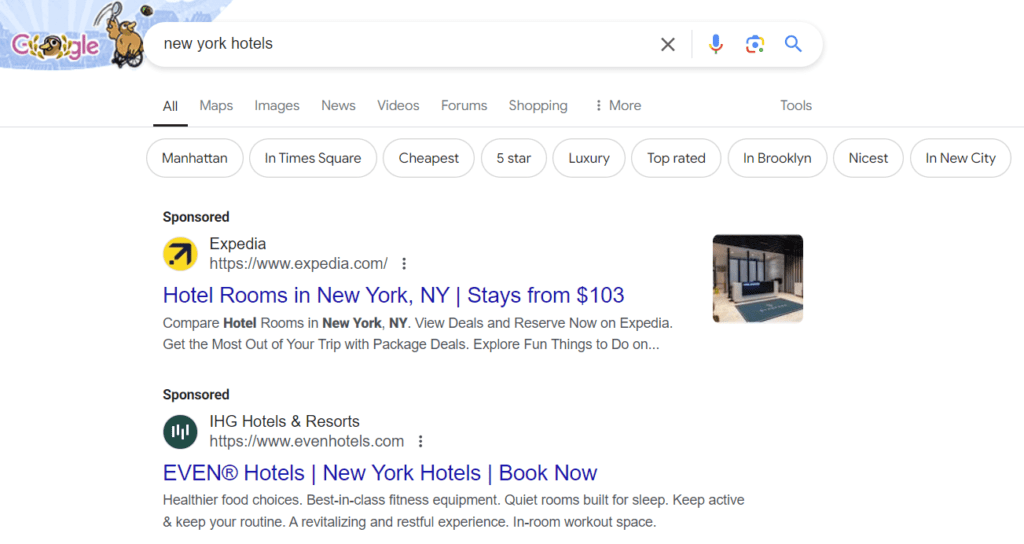
Pay-per-click advertising is a powerhouse in the hotel marketing toolkit, but it’s not just about throwing money at Google and hoping for the best. A truly effective PPC strategy is all about data, testing, and constant refinement.
First things first, segmentation is key. One-size-fits-all campaigns are about as effective as a chocolate teapot. You’ve got to create targeted search campaigns for different types of travelers. Business travelers have entirely different needs and search patterns compared to families looking for a vacation spot. By segmenting your campaigns, you can tailor your ad copy, landing pages, and even bidding strategies to each group.
For instance, a business traveler might be swayed by mentions of high-speed Wi-Fi and proximity to the convention center, while a family might be more interested in kid-friendly amenities and nearby attractions. By speaking directly to these needs in your ads, you’ll see your click-through rates skyrocket.
Now, let’s talk about the unsung hero of PPC: remarketing. If you’re not using remarketing, you’re leaving money on the table. These are people who’ve already shown interest in your hotel – they’re warm leads! Create specific ads for people who’ve visited your site but haven’t booked. Maybe offer a small discount or highlight a unique feature of your property. I’ve seen remarketing campaigns double booking rates for some hotels.
But don’t stop at search ads. Display and video ads can be incredibly powerful for hotels. They allow you to showcase your property visually, which can be a game-changer. Imagine someone seeing a video of your stunning beachfront view while they’re stuck in traffic on a gloomy Monday morning. Talk about planting the seed for their next vacation! Utilize Performance Max as well, it wraps all the best tactics into one campaign and uses machine learning to reach your performance goals.
However, the real magic happens when you start diving into the data. Regular performance analysis is crucial. I’m talking at least weekly, if not daily, especially during peak booking seasons. Look at which keywords are driving bookings, not just clicks. Sometimes, the keywords that drive the most traffic aren’t the ones driving actual reservations.
Use this data to continuously refine your campaigns. Maybe you’ll find that “luxury hotel with rooftop bar” is outperforming “5-star hotel downtown”. Great! Allocate more budget to the winner and create more ad variations around that theme.
Don’t forget about negative keywords either. They’re like bouncers for your ad campaign, keeping out the riffraff (in this case, irrelevant clicks that eat up your budget). If you’re a luxury hotel, you probably don’t want to show up for searches like “cheap hotels” or “budget accommodations”.
And here’s a pro tip: use ad extensions liberally. Price extensions, callout extensions, structured snippets – they all help your ad take up more real estate on the search results page and provide more information to potential guests. More information usually means higher quality clicks.
Lastly, keep an eye on your quality scores. They’re Google’s way of grading your ads, and they have a huge impact on both your ad positions and how much you pay per click. High-quality scores mean lower costs and better ad positions – it’s like getting a two-for-one deal.
Remember, PPC isn’t a “set it and forget it” kind of deal. It requires constant attention, tweaking, and optimization. But when done right, it can be an absolute goldmine for hotels. I’ve seen properties go from struggling to fill rooms to having waiting lists, all thanks to a well-executed PPC strategy.
So dive into that data, test relentlessly, and watch your bookings soar. Just be prepared – once you start seeing those results, PPC can get addictive. You might find yourself checking your Google Ads account more often than your social media!
Harness the Power of Social Media Marketing

Social media marketing for hotels is a lot like hosting the perfect party – you need the right mix of ambiance, entertainment, and engaging conversation to keep your guests coming back for more. And let me tell you, in today’s digital landscape, it’s not just nice to have – it’s essential.
First off, consistency is key. Your brand voice needs to be as recognizable across platforms as your hotel’s signature cocktail. Whether it’s Facebook, Instagram, Twitter, or even TikTok (yes, hotels are killing it on TikTok these days), your tone should be unmistakably you. Friendly and professional? Quirky and fun? Luxurious and exclusive? Whatever fits your brand, stick to it.
Now, let’s talk content. Posting “Book now!” every other day is about as effective as a chocolate fireguard. Your social media should be a window into the experience of staying at your hotel. Share behind-the-scenes glimpses of your staff preparing for events. Post drool-worthy photos of your chef’s latest creations. Showcase your rooms, sure, but also highlight the little touches that make a stay special – maybe it’s the handwritten welcome notes or the locally-sourced toiletries.
Don’t forget about your location, either. You’re not just selling a room; you’re selling a destination. Share content about local attractions, hidden gems, and upcoming events. Be the local guide your followers didn’t know they needed. I once worked with a hotel that saw a 30% increase in engagement just by starting a weekly “Local’s Picks” series.
But here’s where the rubber really meets the road: targeted social media ads. The level of granularity you can achieve with social media targeting is mind-blowing. Want to target honeymooners planning a trip to your city in the next 3 months? You can do that. How about business travelers who frequently visit your competitor’s hotels? Yep, that too.
When it comes to ad creatives, video is king. A 360-degree room tour or a time-lapse of your rooftop bar at sunset can be more compelling than a dozen static images. And don’t be afraid to experiment with formats. I’ve seen hotels have great success with carousel ads showcasing different room types or amenities.
Now, let’s talk about the holy grail of social media marketing: user-generated content. There’s nothing more powerful than a happy guest sharing their experience. Encourage guests to use a branded hashtag and share their photos. Not only does this provide you with a wealth of authentic content, but it also serves as social proof for potential guests.
Engagement is crucial. Social media isn’t a billboard; it’s a conversation. Respond to comments, answer questions, and for heaven’s sake, address any complaints quickly and professionally. I’ve seen hotels turn potential PR nightmares into shining examples of customer service, all through skillful social media management.
And here’s a pro tip: leverage social listening tools. They can help you track mentions of your hotel across social media, even when you’re not directly tagged. This can provide valuable insights into guest sentiment and help you identify and address issues before they escalate.
Lastly, don’t forget about influencer partnerships. But be strategic. A mega-influencer might get you lots of eyes, but a micro-influencer in the travel niche might get you more bookings. Look for influencers whose audience aligns with your target market.
Remember, social media marketing is a marathon, not a sprint. It takes time to build a following and see results. But with consistency, creativity, and a data-driven approach, you can turn your social media channels into powerful booking engines.
So, get out there and start socializing! Just don’t blame me if you find yourself obsessively checking your phone for new likes and comments. It happens to the best of us!
Utilize Email Marketing to Nurture Customer Relationships
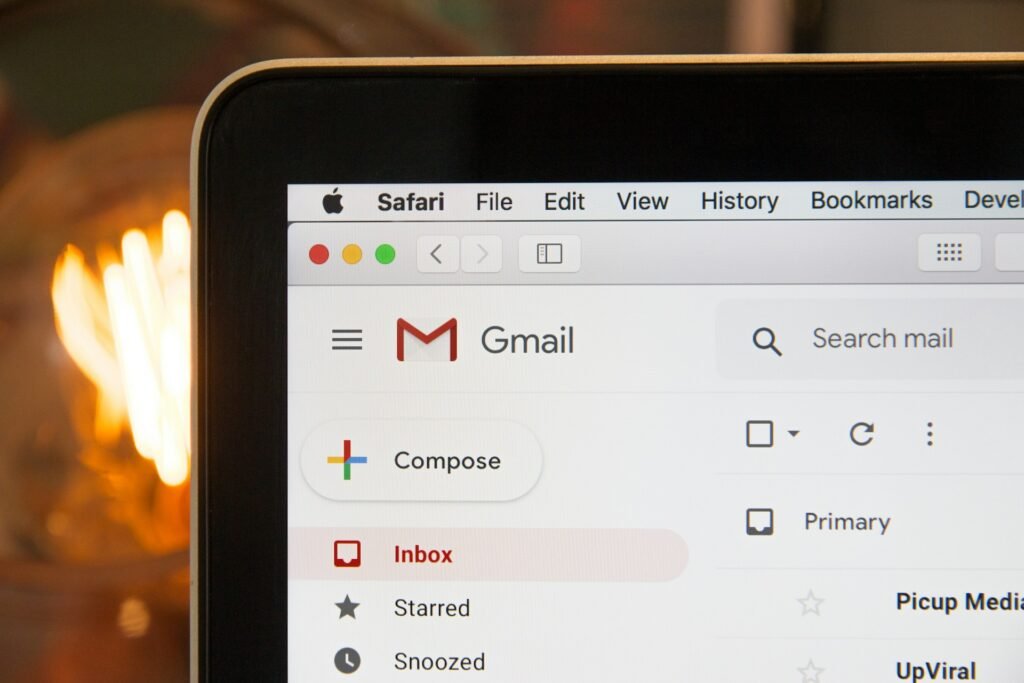
Email marketing might seem like the dinosaur of digital marketing, but let me tell you, it’s more like a T-Rex – still king of the jungle when it comes to ROI. For hotels, it’s not just about blasting out promotions; it’s about nurturing relationships and creating personalized experiences that keep guests coming back.
First things first, you need to build a robust email list. Your website should have multiple opportunities for visitors to sign up – perhaps in exchange for a free city guide or a chance to win a complimentary night’s stay. But don’t stop there. Capture emails during the booking process, at check-in, and even through in-room materials. Just remember, always get explicit permission. Nobody likes a spammer.
Now, here’s where the magic happens: segmentation. One-size-fits-all emails are about as effective as a screen door on a submarine. Break your list down based on factors like past stay history, preferences, and booking behavior. A business traveler who always books your executive suite should receive very different emails from a family that visited once for a summer vacation.
With your segments in place, it’s time to create personalized email campaigns for different stages of the customer journey. For pre-arrival guests, send out emails with local weather forecasts, packing tips, and information about hotel amenities. For post-stay emails, ask for feedback and offer a special rate for their next visit. And for those leads that haven’t converted yet? Tempt them with limited-time offers or showcase new features or renovations.
Automation is your best friend here. Set up triggered emails based on specific actions or timeframes. A booking confirmation email is standard, but how about an email two days before arrival asking if they need airport transfer? Or an email on their birthday offering a complimentary spa treatment during their next stay? These little touches can make a big difference in guest satisfaction and loyalty.
Now, let’s talk about content. Your emails should be more than just a series of “Book Now!” buttons. Share stories about your staff, spotlight local events or attractions, or give behind-the-scenes peeks at hotel operations. One hotel I worked with saw great engagement with a monthly “Meet the Team” email featuring different staff members.
Don’t forget about design. Your emails should be as visually appealing as your hotel lobby. Use high-quality images, but be mindful of file sizes – nobody wants to wait five minutes for an email to load. And for the love of all that’s holy, make sure they’re mobile-responsive. More than half of emails are opened on mobile devices these days.
A/B testing is crucial for optimizing your email marketing. Test everything – subject lines, send times, content, layout, CTAs. You might be surprised at what resonates with your audience. I once saw a hotel increase their email open rates by 15% just by changing their subject line format.
Timing is everything. Pay attention to when your emails get the most engagement and adjust your send times accordingly. And be mindful of frequency – you want to stay top-of-mind without becoming annoying.
Lastly, always provide value. Every email should have a clear purpose and offer something useful to the recipient, whether it’s information, entertainment, or a special offer. Remember, you’re a guest in their inbox – make sure you’re a welcome one.
Email marketing, when done right, can be a powerful tool for building lasting relationships with your guests. It’s not just about driving bookings (although it does that too), but about creating a connection that keeps your hotel at the forefront of their minds when they’re planning their next trip.
So fire up that email platform and start nurturing those relationships. Just don’t be surprised if you find yourself obsessing over open rates and click-throughs. It’s addictive stuff!
Embrace Content Marketing to Showcase Your Hotel’s Unique Value Proposition

Content marketing in the hotel industry is like being the ultimate concierge – you’re not just selling rooms, you’re selling experiences, memories, and a slice of local life. It’s your chance to showcase what makes your hotel unique and why guests should choose you over the sea of other options out there.
Let’s start with the cornerstone of any good content marketing strategy: a hotel blog. But I’m not talking about dry, corporate updates. Your blog should be a treasure trove of information that potential guests actually want to read. Think local area guides that even long-time residents would find useful. Or how about behind-the-scenes peeks at hotel life? People love that insider stuff.
One hotel I worked with created a series called “48 Hours in [City Name]” tailored for different types of travelers – foodies, history buffs, outdoor enthusiasts. It was a hit! Not only did it drive traffic to their site, but it positioned them as local experts, which is pure gold in the hospitality industry.
Now, let’s talk visuals. In this Instagram age, high-quality photos and videos are non-negotiable. But don’t just stick to glossy room shots. Capture the essence of the guest experience. The view from the rooftop bar at sunset. The chef preparing a signature dish. The concierge greeting a guest with a smile. These authentic moments tell your hotel’s story better than any brochure ever could.
Virtual tours are another powerful tool in your content arsenal. With the right tech, potential guests can explore your property from the comfort of their couch. It’s like giving them a sneak peek of their stay, building excitement and helping to seal the deal.
But here’s where many hotels miss a trick: downloadable resources. Create city guides, packing lists, or local phrase books that visitors can download in exchange for their email address. It’s a win-win – they get valuable content, and you get a lead to nurture.
Don’t forget about user-generated content. Encourage guests to share their experiences and feature the best content on your platforms. There’s nothing more powerful than authentic guest stories to inspire others to book.
Now, let’s talk distribution. Your amazing content won’t do much good if no one sees it. Share it across your social media channels. Include snippets in your email marketing. Consider syndicating popular articles on travel websites or local news outlets.
Collaborations can supercharge your content marketing efforts. Partner with local attractions or restaurants to create co-branded content. Or team up with travel influencers or bloggers for authentic, engaging stories about your property and destination.
SEO should be at the forefront of your content strategy. Identify relevant keywords and naturally incorporate them into your content. But remember, you’re writing for humans first, search engines second. No one wants to read a keyword-stuffed mess.
Measure, analyze, refine. Keep a close eye on which content resonates with your audience. Which blog posts get the most traffic? Which videos have the highest engagement? Use these insights to inform your future content strategy.
Lastly, be consistent. Content marketing is a long game. You won’t see results overnight, but stick with it, and you’ll build a valuable resource that drives traffic, engages potential guests, and sets you apart from the competition.
Remember, in content marketing, you’re not just selling a room – you’re selling a story. Make it a good one, and watch as potential guests are drawn into your hotel’s unique narrative, eager to experience it for themselves. Now, if you’ll excuse me, all this talk of travel content has me itching to plan my next getaway!
Optimize for Voice Search and AI Assistants

“Hey Siri, find me a hotel near Central Park.” If that doesn’t make you sit up and take notice, you might be missing out on a huge opportunity. Voice search and AI assistants are no longer futuristic concepts – they’re here, and they’re changing the game for hotel digital marketing.
First things first, let’s talk about the shift in search behavior. Voice searches tend to be longer and more conversational than typed queries. People aren’t saying “hotels New York,” they’re asking “What are the best family-friendly hotels near Central Park?” This means we need to rethink our keyword strategies.
Long-tail keywords are your new best friend. Start incorporating more natural, conversational phrases into your content. Think about the questions your potential guests might ask and create content that answers them directly. FAQs are gold for voice search optimization.
But it’s not just about keywords. The structure of your content matters too. Voice search often pulls featured snippets for its answers. So, aim to get your content into that coveted position zero. Use clear headings, bulleted lists, and concise answers to common questions.
Local SEO is crucial for voice search optimization. Many voice searches are location-based, like “find a hotel near me” or “what’s the closest boutique hotel?” Make sure your Google My Business listing is up-to-date and fully optimized. Include all relevant information – address, phone number, check-in times, amenities. The more complete your listing, the more likely you are to show up in voice search results.
Now, let’s talk about AI assistants. They’re not just for voice search – they’re becoming travel planning tools in their own right. Some can even make bookings directly. So, how do you make sure your hotel plays nice with these AI helpers?
First, structured data is key. Use schema markup on your website to help AI assistants understand your content. This includes things like room types, rates, amenities, and availability. The easier you make it for AI to parse your information, the more likely you are to show up in results.
Consider creating Actions for Google Assistant or Skills for Alexa. These can range from simple information lookups to more complex interactions like checking availability or even making bookings. One hotel I worked with created an Alexa Skill that allowed guests to request room service or extra towels – talk about convenience!
Mobile optimization is more important than ever. Many voice searches happen on mobile devices, so your website needs to be fast, responsive, and easy to navigate on smaller screens. Google’s mobile-first indexing means this is crucial for your overall search performance, not just voice search.
Don’t forget about featured snippets and rich results. These are prime real estate for voice search. Optimize your content to answer specific questions concisely. Use structured data to mark up things like room rates, star ratings, and amenities.
Here’s a pro tip: focus on question words – who, what, where, when, why, and how. Voice searches often start with these words. Create content that directly answers these types of questions about your hotel and destination.
Lastly, keep an eye on the evolving capabilities of AI assistants. They’re getting smarter all the time, and their role in travel planning is likely to grow. Stay ahead of the curve by regularly reviewing and updating your voice search strategy.
Remember, optimizing for voice search and AI assistants isn’t just about technology – it’s about understanding and adapting to changing user behavior. It’s about being there with the right information at the moment your potential guest asks for it.
So, the next time you catch yourself asking Siri or Alexa a question, think about how your hotel can be the answer. Because in the world of voice search, if you’re not speaking your customers’ language, you might as well be silent.
Leverage Metasearch Engines to Expand Your Reach
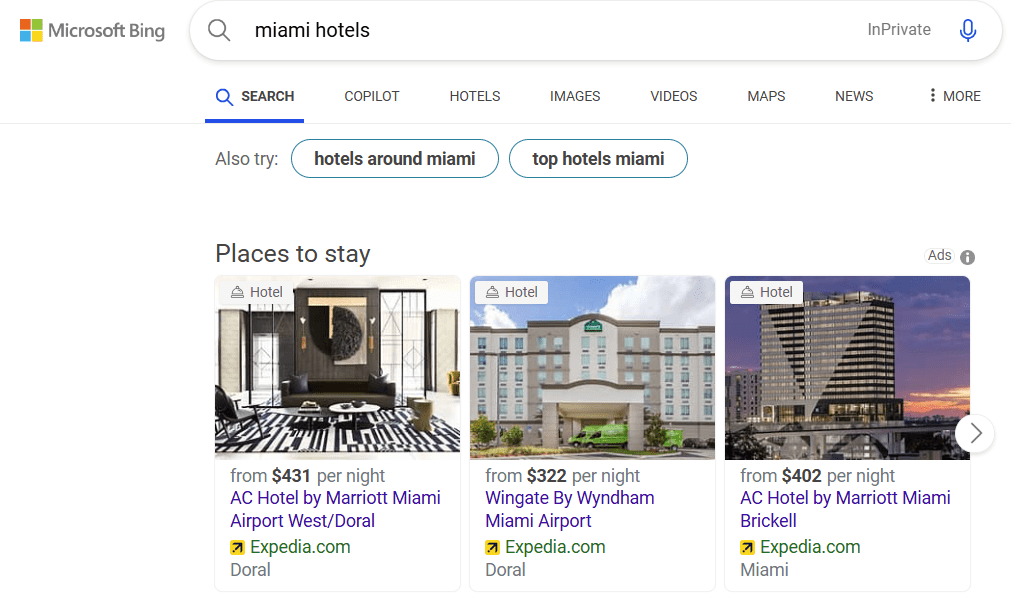
If you’re not on metasearch engines, you’re missing out on a huge chunk of the travel market. These platforms are like the Grand Central Station of hotel bookings – they’re where travelers go to compare prices, read reviews, and make decisions. And let me tell you, if you’re not in the race, you can’t win it.
First off, let’s talk about the big players: Trivago, Kayak, TripAdvisor, and Google Hotel Ads (which we covered earlier). Each has its own quirks and advantages, but they all serve the same purpose – to help travelers find the best deal. Your job? Make sure you’re showing up with a competitive offer.
Now, getting listed on these platforms is just the first step. The real work begins with optimizing your presence. Start with the basics – make sure your hotel information is accurate and up-to-date. Room types, amenities, photos – everything should be current and enticing. I’ve seen hotels lose bookings simply because they forgot to update their pool renovation status. Don’t be that hotel.
Pricing strategy is crucial on metasearch engines. You’re competing directly with OTAs here, so you need to be smart. Consider offering a best rate guarantee or exclusive perks for direct bookings. One hotel I worked with saw a 20% increase in direct bookings by offering free breakfast for metasearch reservations.
Reviews are golden on these platforms. Encourage your happy guests to leave reviews, and make sure you’re responding to them – good and bad. A thoughtful response to a negative review can actually work in your favor, showing potential guests that you care about their experience.
Now, let’s talk bidding strategy. Most metasearch engines work on a cost-per-click (CPC) model. You need to bid strategically to ensure you’re showing up for the right searches without blowing your budget. Start conservatively and adjust based on performance data. And don’t forget to factor in the lifetime value of a guest, not just the immediate booking revenue.
Seasonal adjustments are key. During peak season, you might want to bid more aggressively to capture high-intent travelers. During off-peak times, you might focus on longer stays or package deals to maximize revenue.
Here’s a pro tip: use metasearch engines for market research. They’re a goldmine of data on your competitors’ pricing and availability. Use this information to refine your own strategies.
Don’t neglect your landing pages. When a traveler clicks through from a metasearch engine, they should land on a page that matches their search criteria. If they were looking at your deluxe suite, don’t send them to your homepage. Make it easy for them to complete the booking.
Mobile optimization is crucial. A significant portion of metasearch traffic comes from mobile devices, often from travelers making last-minute bookings. If your mobile experience isn’t smooth, you’re losing bookings.
Consider using a metasearch management tool. These can help you manage your presence across multiple platforms, adjust bids in real-time, and provide valuable analytics. They’re an investment, but for many hotels, the increased efficiency and bookings make them worthwhile.
Lastly, don’t forget about the niche metasearch engines. Depending on your target market, platforms like HotelsCombined, Momondo, or even specialist sites like Mr & Mrs Smith can be valuable channels.
Remember, success on metasearch engines isn’t just about being there – it’s about being competitive, responsive, and strategic. It’s a complex ecosystem, but master it, and you’ll tap into a powerful source of bookings.
So, next time you’re browsing Kayak for your own vacation, take a moment to think about how your hotel shows up in those results. Because in the metasearch game, visibility is everything. And hey, you might even find yourself booking your own hotel – stranger things have happened in this industry!
Implement a Reviews Management Strategy
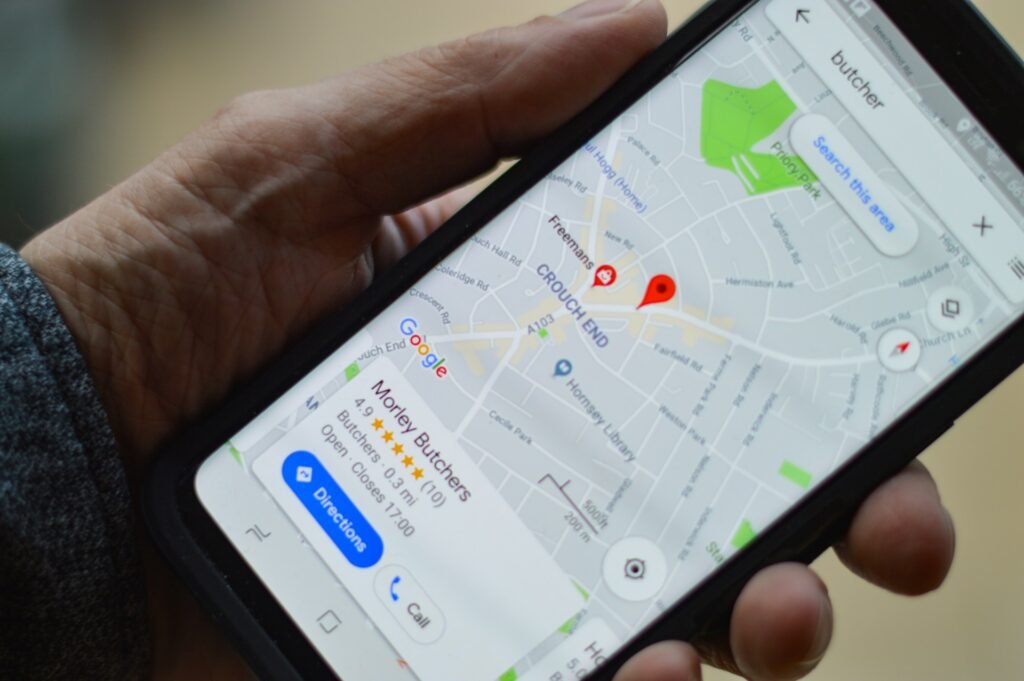
In the hotel industry, your reputation is your currency. And in the digital age, that reputation lives and breathes in online reviews. A solid reviews management strategy isn’t just nice to have – it’s essential for survival and success in this competitive landscape.
First things first, you need to be proactive about generating reviews. Don’t just sit back and hope guests will take the time to share their experiences. Actively encourage them to do so. Send a follow-up email after their stay, include a card with their key at check-out, or even offer a small incentive like a discount on their next stay. Just be careful not to cross the line into bribing for positive reviews – that’s a big no-no.
Now, where should you be focusing your efforts? While there are countless review platforms out there, the big players for hotels are typically TripAdvisor, Google, and Booking.com. But don’t neglect other platforms like Yelp or Facebook, especially if they’re popular in your area.
Here’s the kicker – getting reviews is only half the battle. How you respond to them is equally crucial. Yes, that means responding to every. Single. Review. Positive, negative, or neutral. Why? Because your responses aren’t just for the reviewer – they’re for every potential guest who reads that review in the future.
For positive reviews, a simple thank you isn’t enough. Personalize your response, mention specific details from their review, and invite them back. It shows you value their feedback and care about their experience.
Now, negative reviews. They’re not fun, but they’re inevitable. The key is to view them as opportunities rather than attacks. Respond promptly, professionally, and personally. Acknowledge their concerns, apologize for any shortcomings, and outline the steps you’re taking to address the issue. If possible, take the conversation offline to resolve any specific problems. I’ve seen hotels turn one-star reviews into five-star experiences through skillful management.
Here’s a pro tip: use review insights to drive real improvements in your hotel. If you’re consistently seeing comments about slow Wi-Fi or uncomfortable beds, it’s time to make some changes. Reviews are a goldmine of customer feedback – use it!
Don’t forget about the power of visual content in reviews. Encourage guests to share photos of their stay. A picture is worth a thousand words, and authentic guest photos can be incredibly persuasive for potential bookers.
Now, let’s talk about review aggregation. Your overall rating across platforms matters. Many travelers won’t even consider a hotel below a certain star rating. Monitor your aggregate score closely and work consistently to improve it.
Consider using a reputation management tool. These can help you monitor reviews across multiple platforms, alert you to new reviews, and even help with response management. For larger properties or hotel groups, these tools can be a real time-saver.
Here’s something many hotels overlook: internal reviews. Implement a system to collect feedback from guests during their stay. This allows you to address issues before they become negative online reviews. A simple “How’s your stay going?” text message can work wonders.
Lastly, don’t be afraid to showcase your best reviews. Feature them on your website, share them on social media, even include them in your email marketing. Social proof is powerful – let your happy guests sell your hotel for you.
Remember, review management isn’t a set-it-and-forget-it task. It requires constant attention and effort. But the payoff is worth it. Positive reviews don’t just make you feel good – they drive bookings, improve your search rankings, and build trust with potential guests.
So next time you’re tempted to skip responding to that review, remember – your reply could be the deciding factor for a future guest. In the world of hotel digital marketing, your reputation truly is your most valuable asset. Guard it, nurture it, and watch your bookings soar!
Utilize Data Analytics for Continuous Improvement

In the world of hotel digital marketing, data is your compass, your map, and your crystal ball all rolled into one. If you’re not leveraging data analytics, you’re essentially flying blind. And in this competitive landscape, that’s a luxury you can’t afford.
First things first, you need to set up proper tracking and analytics tools. Google Analytics 4 is a must-have, but don’t stop there. Consider tools like Adobe Analytics for more advanced insights, or specialized hospitality analytics platforms. The key is to have a robust system that can track every touchpoint of the guest journey, from that first click on your ad to the post-stay survey.
Now, let’s talk about Key Performance Indicators (KPIs). In the hotel industry, it’s not just about website traffic. You need to be tracking metrics like booking conversion rates, revenue per available room (RevPAR), average daily rate (ADR), and length of stay. These metrics give you a holistic view of your digital marketing performance and its impact on your bottom line.
But here’s the thing – data collection is just the beginning. The real magic happens when you start analyzing and acting on that data. Look for patterns and trends. Are certain room types more popular during specific seasons? Do guests from particular countries tend to book longer stays? These insights can inform everything from your pricing strategy to your marketing campaigns.
A/B testing should be your new best friend. Test everything – your website design, your ad copy, your email subject lines. Even small tweaks can lead to significant improvements in conversion rates. I once worked with a hotel that increased their booking rate by 15% just by changing the color of their “Book Now” button. Never underestimate the power of continuous optimization!
Segmentation is crucial in data analysis. Don’t look at your guests as one homogeneous group. Break them down by demographics, booking behavior, and preferences. This allows you to tailor your marketing efforts and create more personalized experiences. For instance, you might find that business travelers are more likely to book last-minute deals, while families plan months in advance.
Now, let’s talk about predictive analytics. This is where things get really exciting. By analyzing historical data, you can forecast future trends and behaviors. This can help with everything from inventory management to pricing strategies. Imagine being able to predict your occupancy rates months in advance – that’s the power of predictive analytics.
Don’t forget about competitor analysis. Tools like STR reports can provide valuable insights into your competitive set’s performance. Are you lagging behind in certain metrics? Are there opportunities to capture market share? Use this data to refine your strategies and stay ahead of the curve.
Here’s a pro tip: pay attention to your attribution models. The guest journey is complex, often involving multiple touchpoints before a booking is made. Make sure you’re giving credit where it’s due. Last-click attribution might be undervaluing your social media efforts or display ads.
Real-time analytics is another game-changer. The ability to monitor and react to data in real-time allows you to make quick adjustments to your campaigns, pricing, or inventory. If you notice a sudden spike in searches for your hotel, you might want to adjust your ad spend or room rates accordingly.
Lastly, remember that data analysis is not just for the marketing team. Share insights across departments – from revenue management to guest services. A data-driven culture can lead to improvements across the entire guest experience.
But here’s the most important thing to remember: data is useless if you don’t act on it. Make sure you have a system in place to turn insights into action. Regular strategy meetings to review data and make decisions are crucial.
In the end, data analytics is about continuous improvement. It’s about making informed decisions, testing hypotheses, and constantly refining your strategies. It’s not always glamorous work, but it’s what separates the good from the great in hotel digital marketing.
So, dive into that data. Embrace the numbers. Let them tell you a story about your guests, your hotel, and your market. Because in this data-driven world, the hotels that master analytics are the ones that will thrive. Now, if you’ll excuse me, I have some spreadsheets calling my name!
Navigating the world of hotel digital marketing can feel overwhelming, but I promise you, it’s worth the effort. By implementing these 10 strategies, you’ll be well on your way to boosting your hotel’s online visibility, increasing bookings, and ultimately, growing your revenue. Remember, digital marketing is not a “set it and forget it” endeavor – it requires constant adaptation and optimization. But hey, that’s what makes it exciting, right? As you embark on this journey, don’t be afraid to experiment and learn from both your successes and failures. Trust me, I’ve had my fair share of both! Now, it’s time to take action. Start by assessing your current digital marketing efforts and identify areas for improvement. Your future guests are out there searching for their next great stay – make sure they find you!
I’m an SEO and performance marketing leader who loves breaking down complex strategies into clear, actionable insights. I have driven growth for reputable brands such as SAP, Four Seasons, BioMarin Pharmaceutical, and Rosewood Hotels in SEO and Performance Marketing strategy.

